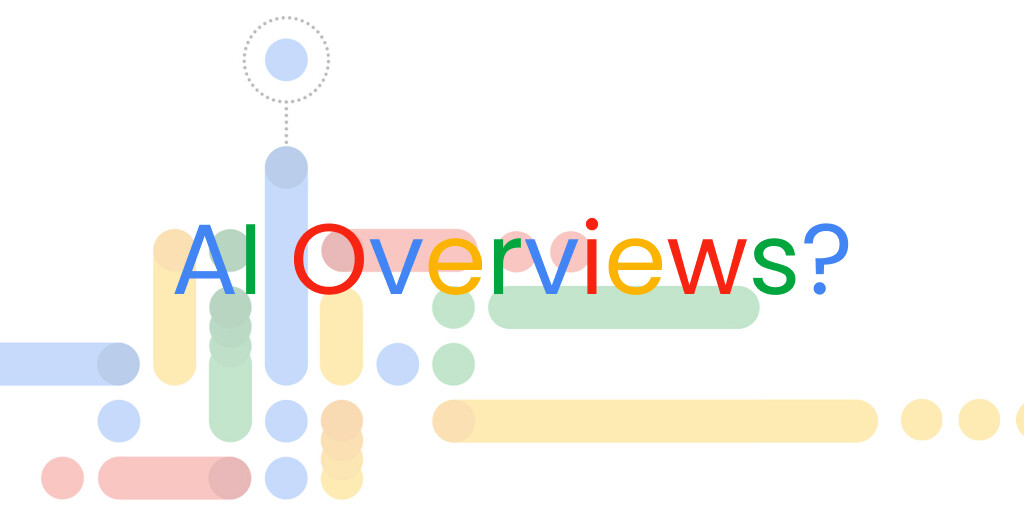We’ve recently seen an increase in new business leads attributed to ChatGPT. This means instead of using Google’s search results via SEO or Google Ads some users are instead going straight to AI generated search engines to research and select a service provider.
While this might just seem like an interesting change, it’s a timely reminder of the importance of future proofing your lead generation strategy to not rely exclusively on what has worked in the past.
What is Generative Engine Optimisation (GEO)?
Generative Engine Optimisation or GEO is the emerging phrase describing what many are seeing as the next iteration of SEO. It refers to the practice of crafting content in such a way that AI driven search engines such as ChatGPT, Perplexity, Google Gemini and Google AI Overviews prioritise it when answering user enquiries.
What’s the difference between GEO & SEO?
While there are lots of crossovers, the requirements for effective GEO differ from traditional SEO.
At its core, SEO is about strategically undertaking a range of tactics to influence where web pages rank in the search engines.
On the other hand, GEO leverages many of the same requirements of SEO along with Machine Learning (ML), Artificial Intelligence (AI) and Natural Language Processing (NLP) to deliver high quality, specific content that answers real time, custom user queries within tools such as ChatGPT, now integrated with Siri and set to roll out across all Apple devices by year-end as part of Apple’s new “Apple Intelligence”—an advanced fusion of Machine Learning, Artificial Intelligence, and Natural Language Processing.
Expanding Beyond Traditional SEO
If your online coming of age happened in a time before AI, you’ll find that traditional SEO strategies remain effective and reliable.
There’s no doubt that in its early days, typing a search query and receiving at least a vaguely relevant response was revolutionary.
Like everything, time has a way of revealing shortfalls we never knew existed. I believe we are in the middle of a period of change that will impact the nature of digital marketing.
SEO efforts have traditionally come from optimising static content.
That is, the words you wrote on your website, whether last week, last year or last decade, are what will be served by the search engines and read by your users. It’s a one size fits all solution.
Nuanced communication is one of the fundamental tenets differentiating humans from every other species on earth. It’s why we can sense when we are being lied to or sold to, discern a trustworthy person from a crook or tell when someone genuinely knows what they are talking about.
So, it’s only logical that Generative AI’s capacity to understand the fine subtleties of a unique search query and present content specifically and unambiguously tailored to those needs will feed our innate desire to be understood.
And this is where GEO shines so brightly in a way that SEO never did.
GEO and Lead Generation
By far the number one request we receive from clients at Distl is how to attract leads, in particular for B2B clients. Whether you’re an accountant, lawyer, plumber or a commercial cleaner you’ll know leads are the lifeblood of your business.
Our philosophy at Distl is that working toward a holistic multi-channel approach is the best way to safeguard your growth into the future. This means weighing up the potential of all the channels available to you and objectively considering the emerging ones.
While SEO remains a valuable foundation for growing your business online, I believe we are at an inflection point, and those adapting to the opportunities of Generative Engine Optimisation will reap outsized benefits to those willing to embrace it early.
Start Your GEO Journey
To capitalise on the fine-tuned nature of GEO, it’s important to use AI research to determine user intent, current content expectations, what your competitors are doing and how you can write new content that conversationally speaks to the exact needs of your audience.
Spend Time Understanding AI Responses
The best place to start is to dive into the power of tools like ChatGPT or Perplexity where you can see trends in the sorts of semantic terms and phrases that AI outputs.
Progressive Querying
For example, if you’re a tax accountant in Perth, try asking ‘Who is the best tax accountant in Perth’? Once you have the results, ask the chatbot why that business is better at tax accounting than your business is.
It’s important to remember that you may know that business isn’t actually better than yours but remember the AI tool only has the digital landscape to gather their insights. That’s what we’re trying to influence.
Keep asking more questions like this and you’ll soon understand why that AI tool prioritises a competitor over you, this can help you to tailor your content to address these factors.
Clearly, this alone isn’t enough to dominate the GEO landscape. It’s just one factor among many that you will at least help you understand the opportunity and start your journey.
Final Thoughts
The good news is that effective SEO is still the foundation for gaining a foothold in the GEO landscape. High quality, well-structured content, visibility in the search engines, technical optimisation, engagement and authority building are all essential for both SEO and GEO performance.
If you’re interested in developing a lead generation focussed SEO strategy that encompasses GEO, reach out for an obligation free chat.





